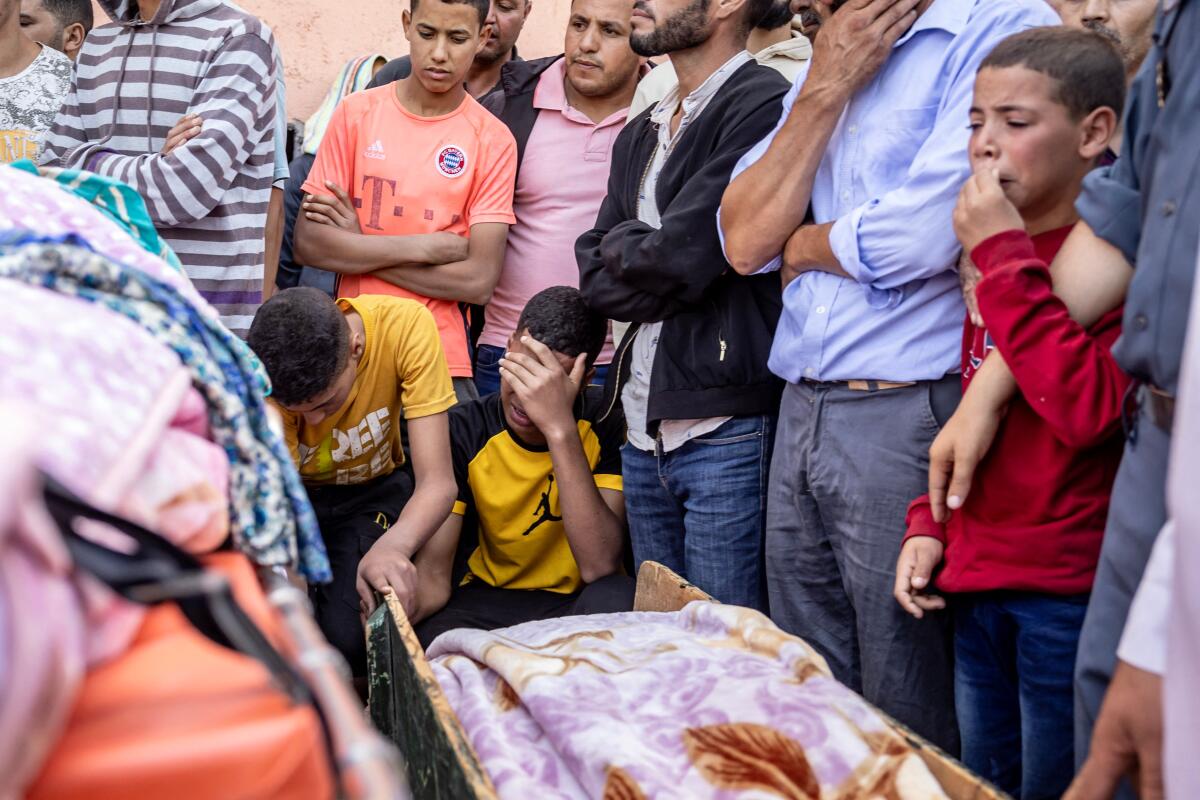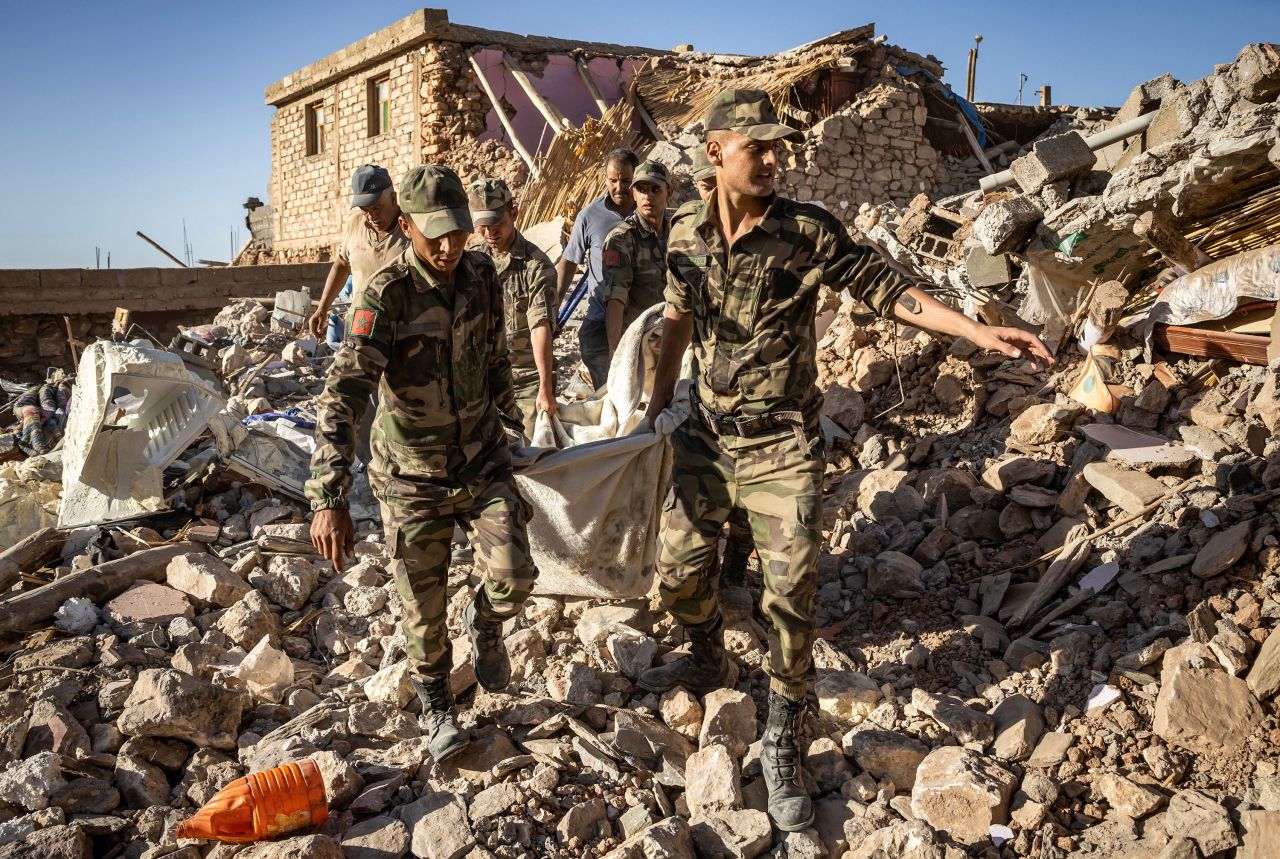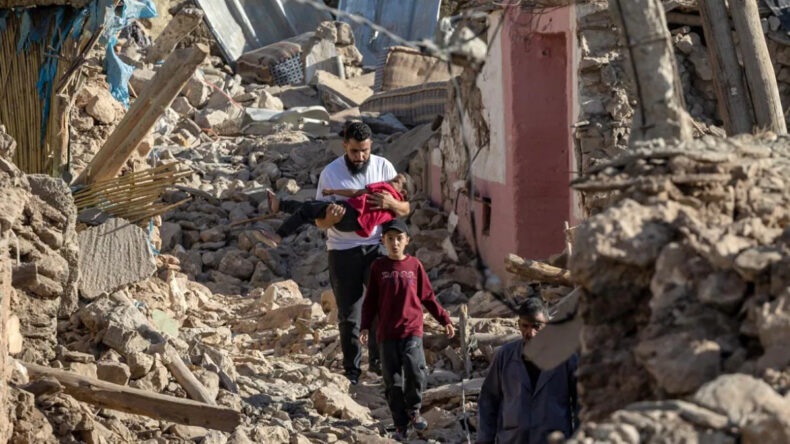More than 2,000 people have died in Morocco’s biggest earthquake in decades, according to authorities, who made the announcement on Saturday as troops and emergency services raced to remote mountain villages where survivors are still thought trapped.
Although the Red Cross cautioned that it could take years to repair the damage, the authorities proclaimed three days of national mourning.
According to the US Geological Survey, the 6.8-magnitude earthquake occurred late on Friday in a hilly region 72 kilometres (45 miles) southwest of the tourist destination of Marrakesh.
The earthquake, which was also felt strongly in Rabat, Casablanca, and Essaouira, caused significant damage and sent panicked locals and visitors fleeing for safety in the middle of the night.
Ghannou Najem, a woman in her 80s from Casablanca who was in Marrakesh when the earthquake struck, stated, “I was almost asleep when I heard the doors and the shutters banging. I panicked and ran outside. I believed I would die alone.”
Almost no buildings were still standing in the mountain community of Tafeghaghte, which is close to the epicentre of the earthquake. The region’s native Berbers employed traditional clay bricks, but they were no match for the unusual earthquake.
Soldiers kept searching through the rubble in the late afternoon, but the majority of survivors went to the cemetery, where loud screams marked the final rites and the burial of about 70 residents.
Villager Omar Benhanna, 72, told AFP that three of his grandchildren and their mother were killed—they are still under the rubble. “We were all playing together not so long ago,” he said.
The North African monarchy had never experienced an earthquake of such strength; according to a specialist, it was the “biggest in more than 120 years” to impact the area.
“Where destructive earthquakes are rare, buildings are simply not constructed robustly enough… so many collapse, resulting in high casualties,” said Bill McGuire, a professor emeritus at Britain’s University College London.
The interior ministry’s most recent report, released late Saturday, indicated that the quake had killed at least 2,012 individuals, the vast majority of whom were located in the provinces of Taroudant and Al-Haouz, which was the epicentre.
According to the ministry, there were 2,059 further injuries totaling 1,404 people in critical condition.
The leader of the relief efforts, Civil Defence Colonel Hicham Choukri, had told state media that the earthquake’s epicentre and strength had produced “an exceptional emergency situation.”
Following a meeting presided over by King Mohammed VI, the palace declared three days of national mourning, during which all public buildings were to fly their flags at half-staff.

Citizens of Morocco terrified
The Marrakesh earthquake, according to engineer Faisal Badour, was felt three times inside his structure. There are families who are still sleeping outside because we were so afraid of the earthquake’s size, he said. The shouting and wailing were intolerable.
Frenchman Michael Bizet, 43, who owns three traditional riads in Marrakesh’s old town, told AFP that he was asleep when the earthquake struck. “I thought my bed was going to blow off. I walked directly to my riads after entering the street only partially dressed. He called it utter chaos and a tragedy.
In the Jemaa el-Fna square of the ancient city, video posted on social media showed a minaret partially toppling. Hundreds of people camped out in the area for the night out of fear of aftershocks; some had blankets while others merely slept on the ground.
Local resident Houda Outassaf claimed to be “still in shock” after experiencing the earth trembling beneath her feet and losing family members. “At least ten of my family members passed away,” Since I was just with them two days ago, I can hardly believe it, she remarked.
Blood donations for the injured were requested by the local blood transfusion institution in Marrakech. A matchup between Liberia and Morocco in a Cup of African Nations qualifier that was scheduled to take place on Saturday in the coastal city of Agadir has been postponed indefinitely, according to the Royal Moroccan Football Federation.

Catastrophic Damage
“We heard screams at the time of the tremor,” an Essaouira resident who lives 200 kilometres (125 miles) west of Marrakech told AFP. Facade pieces have fallen.
Hossam Elsharkawi, head of the Middle East and North Africa, issued a stern warning despite the Red Cross’s claims that it was assembling resources to assist the Moroccan Red Crescent: “We are looking at many months, if not years, of response.”
Foreign leaders, including those from Israel, with whom Morocco normalised relations in 2020, offered their solidarity and sorrow. Algeria, a neighbour and adversary in the region, declared it was lifting a two-year ban on all Moroccan flights passing through its airspace to allow for humanitarian relief and medical evacuations.
US President Joe Biden expressed his “deep sadness” over the casualties and destruction.
The head of China, Xi Jinping, expressed his “deep sorrow for the victims” and hoped that “the Moroccan people and government will be able to overcome the effects of this catastrophe.”
At least 628 people died and 926 were hurt in an earthquake that rocked Al Hoceima in northwestern Morocco in 2004. In contrast, a magnitude 6.7 earthquake in Agadir killed more than 12,000 people in 1960.













